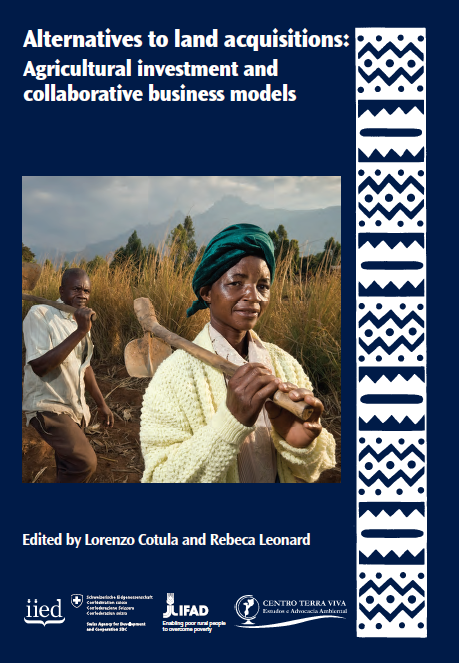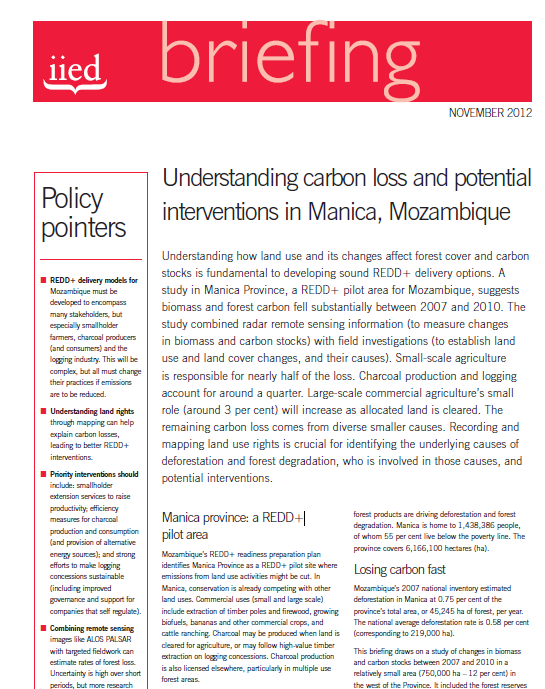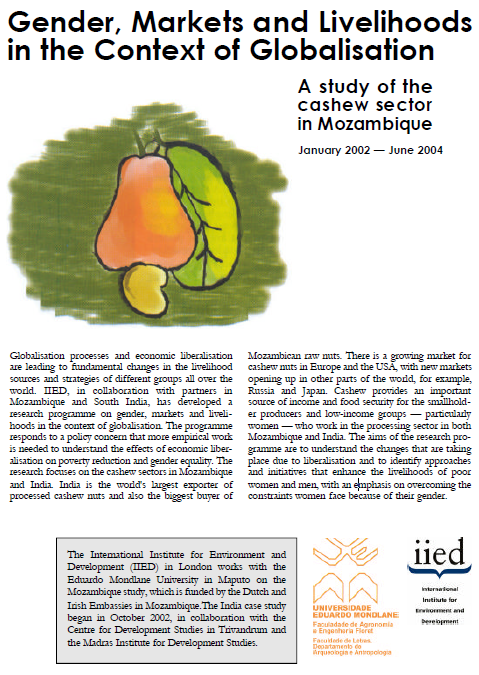Focal point
Location
Mission
Our mission is to build a fairer, more sustainable world, using evidence, action and influence in partnership with others.
Who we are
IIED is one of the world’s most influential international development and environment policy research organisations. Founded in 1971 by economist Barbara Ward, who forged the concept and cause of sustainable development, we work with partners on five continents. We build bridges between policy and practice, rich and poor communities, the government and private sector, and across diverse interest groups. We contribute to many international policy processes and frameworks, including the Intergovernmental Panel on Climate Change, the Millennium Ecosystem Assessment and the UN conventions on climate change and biological diversity.
What we do
IIED carries out research, advice and advocacy work. We carry out action research — generating robust evidence and know-how that is informed by a practical perspective acquired through hands-on research with grassroots partners — and we publish in journals and maintain high research standards. We advise government, business and development agencies, and we argue for changes in public policy. We focus on bottom-up solutions, stay open to flexible, adaptable solutions and are marked by a tradition of challenging conventional wisdom through original thinking.
Resources
Displaying 261 - 265 of 367Long-term outcomes of agricultural investments: Lessons from Zambia
Discusses two agricultural investments in Zambia. Both projects started as state-led, development-oriented initiatives in the 1970s and early 1980s, and were later privatised. This long implementation history provides an opportunity to assess the longer-term socio-economic outcomes of agricultural investments, and to distil insights on practical ways to include lower-income groups in investment processes. Includes national context, design and implementation of the investment projects, and socio-economic outcomes.
Tipping the Balance. Policies to shape agricultural investments and markets in favour of small-scale farmers
Based on case studies in Guatemala, Nigeria, Tanzania and the Philippines. Contains introduction: shaping agricultural investments and markets for inclusion; getting the basics right: the wider policy environment; policies for inclusive agricultural investment and inclusive market governance; conclusions: policy and advocacy priorities for inclusive agricultural investments and market development.
Alternatives to land acquisitions: Agricultural investment and collaborative business models
This report presents experiences discussed at a workshop on the use of collaborative business models in agricultural investments, which aimed to facilitate the exchange of experiences and lesson and to generate lessons from local initiatives to be fed into international processes. The focus was on agriculture defined broadly to include agri-food, biofuels, timber plantations and other agricultural commodities. Experience from other sectors, such as tourism, was included to the extent that they provided insights for agricultural investments.
Understanding carbon loss and potential interventions in Manica, Mozambique
Understanding how land use and its changes affect forest cover and carbon stocks is fundamental to developing sound REDD+ delivery options. A study in Manica Province, a REDD+ pilot area for Mozambique, suggests biomass and forest carbon fell substantially between 2007 and 2010. The study combined radar remote sensing information (to measure changes in biomass and carbon stocks) with field investigations (to establish land use and land cover changes, and their causes). Small-scale agriculture is responsible for nearly half of the loss.
Gender, Markets and Livelihoods in the Context of Globalisation
Globalisation processes and economic liberalisation are leading to fundamental changes in the livelihood sources and strategies of different groups all over the







